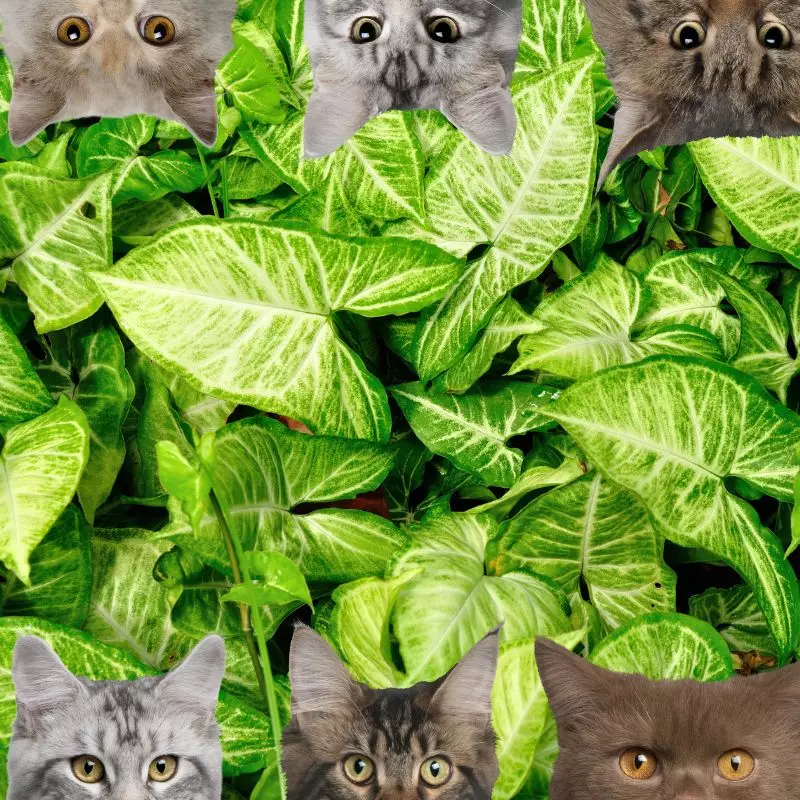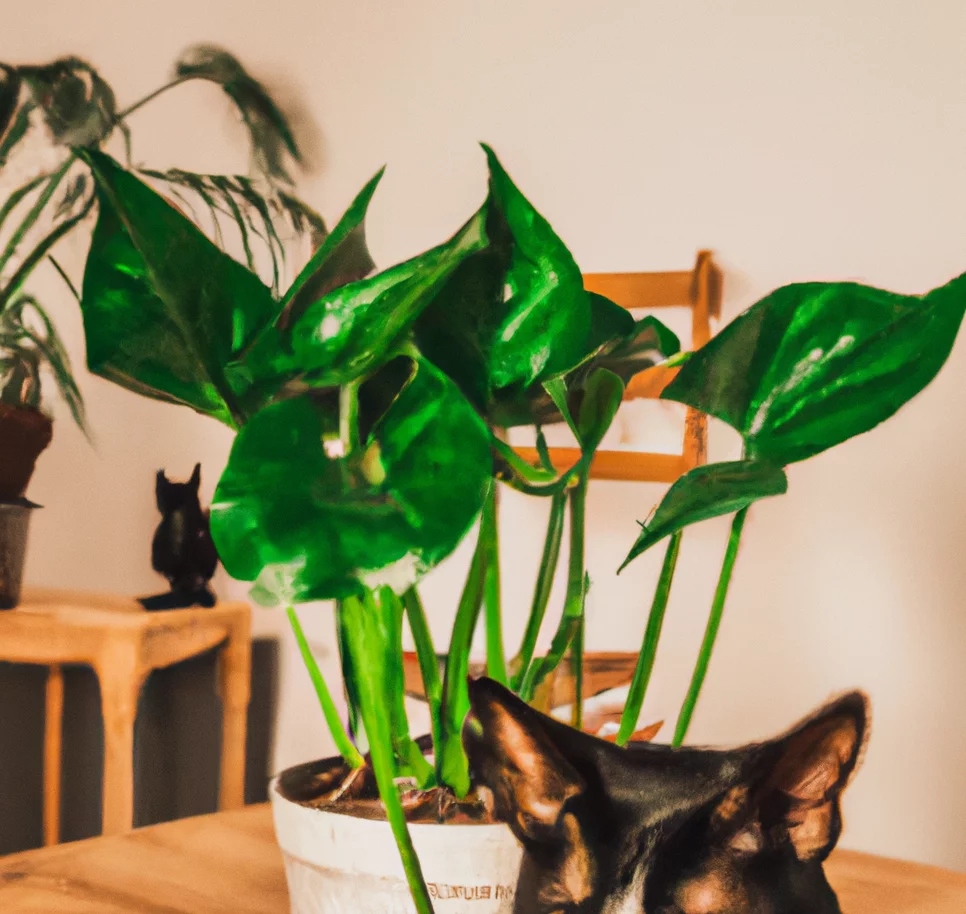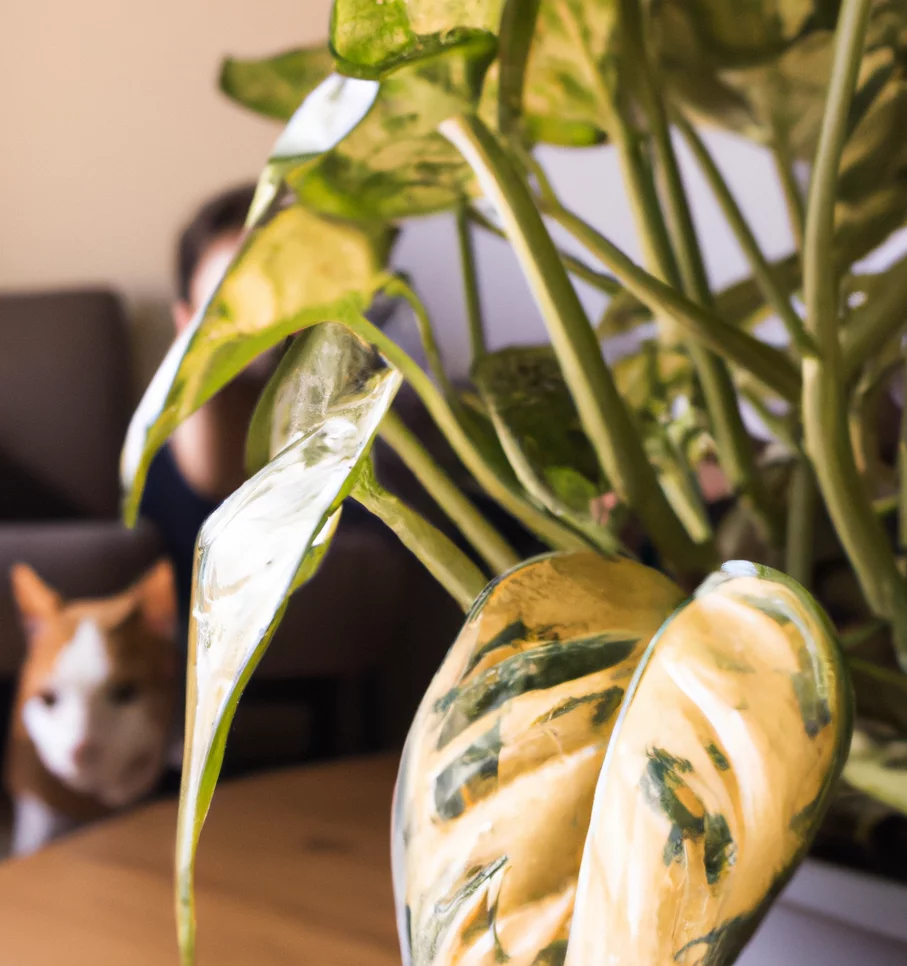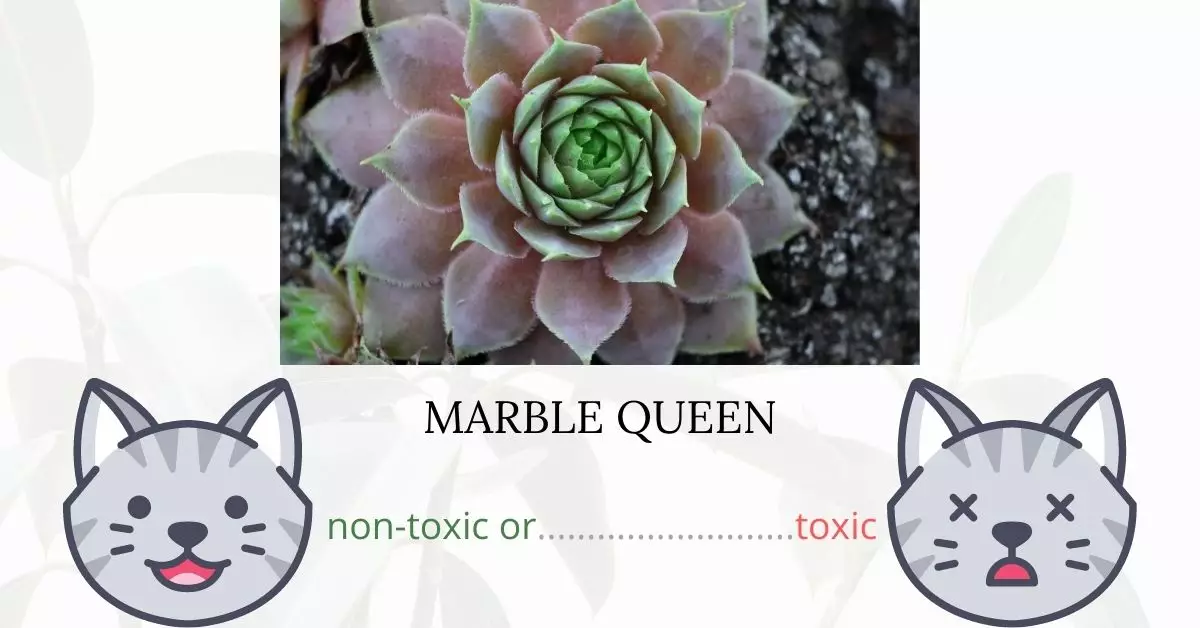Marble Queen plants are indeed toxic to cats. When a cat ingests any part of this evergreen vine, it may experience acute discomfort and irritation due to the presence of calcium oxalates. These oxalates, stored in special plant cells called idioblasts, can attach themselves to the tissues of the mouth, tongue, throat, and stomach, intensifying the discomfort. Additionally, some species of Marble Queen may contain Proteinase, an enzyme that further exacerbates the inflammatory response when combined with calcium oxalate crystals.
This article is a product of our collaboration with a team of experienced DVMs (doctors of veterinary medicine). Their expert insights have significantly informed our understanding of the potential risks associated with various plants, Marble Queen in this case. For added assurance, we have also cross-referenced our findings with high-authority websites such as the ASPCA and PetMD, ensuring our readers receive the most accurate and up-to-date information on this subject.
Clinical Signs of Marble Queen Poisoning in Cats

When a cat comes into contact with, smells, or ingests the Marble Queen plant, it may display a range of clinical signs. These symptoms result from the plant’s toxic compounds, primarily the calcium oxalates, and potentially the enzyme Proteinase in some species. Here’s a breakdown of each sign and its cause:
- Excessive drooling: This occurs as an immediate response to the irritation caused by calcium oxalates on the tissues of the mouth and tongue. The cat’s body produces saliva in an attempt to soothe and wash away the irritants.
- Oral irritation: The sharp calcium oxalate crystals can embed themselves into the cat’s mouth tissues, leading to visible signs of discomfort and inflammation.
- Choking: This is a reaction to the immediate discomfort and swelling, leading the cat to feel as though it has something stuck in its throat.
- Swelling of the throat: The embedded calcium oxalate crystals in the throat tissues cause localized inflammation and swelling.
- Dysphagia (Difficulty swallowing): Resulting from both the irritation in the mouth and the swelling of the throat, making the act of swallowing painful and challenging.
- Extreme difficulty in breathing (Dyspnea): This can arise if the throat’s swelling becomes severe, restricting the cat’s airway.
- Convulsions: These might occur due to the intense pain and distress, or potentially from toxins affecting the nervous system.
- Liver failure: Some toxic plants can affect the liver’s functioning over time, leading to symptoms of liver damage or failure.
- Coma: This severe symptom may arise in cases of extreme poisoning where multiple body systems are compromised.
- Death: In the most severe cases and without prompt medical intervention, the ingestion of Marble Queen can be fatal.
It’s vital for cat owners to be aware of these symptoms and seek immediate veterinary care if they suspect their cat has ingested or come into contact with the Marble Queen plant.
First Aid and Treatment of Marble Queen Poisoning in Cats

The veterinarian will most likely administer symptomatic and supportive treatment, which may include flushing plant matter from the cat’s mouth, inducing vomiting, intravenous fluid therapy, stomach protection medications like Kapectolin or sucralfate, to protect the cat’s stomach lining, and antihistamines like diphenhydramine or Benadryl to relieve swelling and prevent airway blockage. Other treatments and medications may be prescribed by the veterinarian if deemed necessary.
Recovery from Marble Queen Poisoning in Cats

The cat will recover completely, in the great majority of cases, within 12 to 24 hours of consumption. When you get home with your cat, keep the atmosphere calm and comfortable for him or her while he or she recovers from the poisoning. Inquire with your veterinarian about any necessary post-treatment care, such as dietary adjustments for your cat.
Prevention of Marble Queen Poisoning in Cats
Avoid growing marble queen inside your home. If marble queens or even other toxic plants grow within your area of residence, try to restrict your cat’s outdoor activities to lessen the risk of exposure.
If you love plants but have cats at home, check out these lists:





